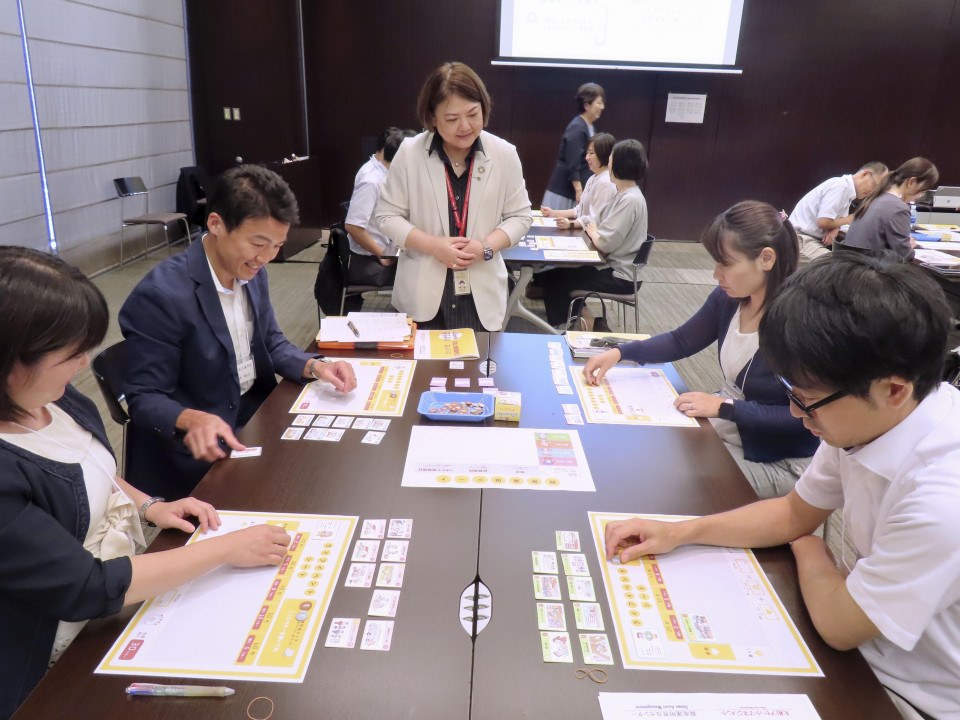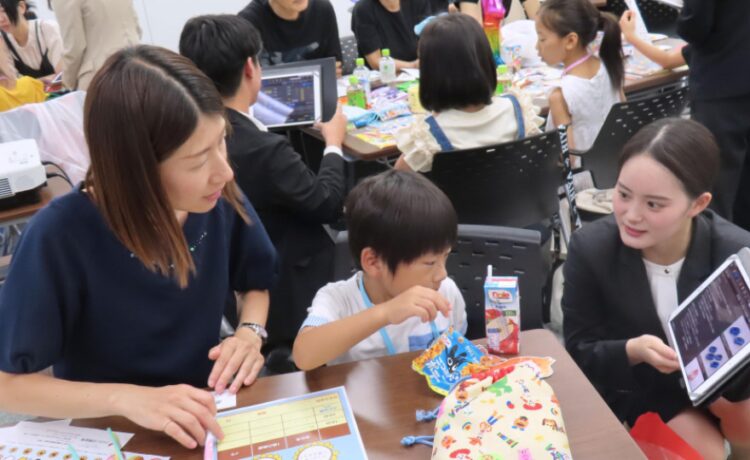Financial education for children in Japan has taken on greater urgency since the country lowered the age of adulthood from 20 to 18 in 2022.
One reason major securities firms are expanding financial education programs for Japanese elementary school children is to teach the importance of responsible money management.
The programs are designed to be enjoyable for younger children by incorporating games and other activities. At the same time, efforts are underway to equip teachers with the necessary training to conduct lessons independently, without the need for financial experts.
“I know that one,” shouted many of the some 30 children gathered at the head office of SMBC Nikko Securities Inc. in Tokyo. The occasion was one of the events held nationwide by the brokerage house at 89 of its local offices during the summer vacation in July and August.

Elementary school pupils participate in SMBC Nikko Securities’ financial and economic education seminar in Tokyo in August 2024. (Kyodo)
The company invited a total of about 1,500 elementary school students and their families to learn fundamentals about money, as well as stocks and other securities.
Sales representatives of SMBC Nikko acted as teachers in the sessions, quizzing children on economic history and playing games to check the stock prices of companies familiar to the kids.
Against the backdrop of the 2014 launch of the Nippon Individual Savings Account — a Japanese government tax exemption program for small investments — and rising living costs, more parents hope their children will acquire financial literacy early on.
“We had no opportunities to learn about money during my childhood. I want my child to become interested in it from a young age,” said a 36-year-old mother from Chiba Prefecture, near Tokyo, who took part in SMBC Nikko’s event with her daughter, who is currently in the second grade.
In October, SMBC Nikko set up an internal organization dedicated to financial and economic education. It is part of its enhanced efforts to reach a wide range of generations, including working adults.
Mitsubishi UFJ Morgan Stanley Securities Co. began offering financial education programs to elementary school students nationwide in 2022. The programs aim to help children develop money sense by understanding the value of work and goods through discussions on activities such as household chores and shopping.
To meet the growing need for financial education at school, Daiwa Securities Group Inc. has held training sessions for teachers, instructing them on how to conduct classes using their own game.

Teachers participate in financial and economic education training hosted by Daiwa Securities Group’s head office in Tokyo in July 2024. (Kyodo)
Using toy money and cards, the game encourages children to consider how to allocate assets they earn through work and individual investments to finance life events, such as purchasing a home, having a child and sending kids to school.
A total of 35 elementary, junior high and high school teachers attended a study session held by Daiwa in late July to learn how to play. “I want to teach my students how to become savvy consumers who spend money in a systematic way,” said a grade school teacher in Tokyo who took part in the session.
In July, Daiwa Connect Securities Co., a unit of the major brokerage house, lowered the minimum age for users of its smartphone-based trading system from 15 to “junior high school students,” providing a service where young people can put into practice what they have been learning.
With parental consent, junior high school students can use the system to trade stocks and other securities.
“The actual experience of investment enhances students’ interest in the politics and economy linked to the stock market, and they learn about investment risks as well,” a Daiwa Connect official said.
Related coverage:
FOCUS: Lowered adult age sees rise in young Japanese struggling with debt

















